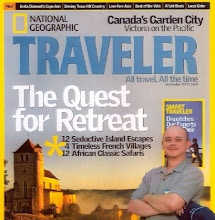Volunteers Worldwide Mobilize for Ocean Conservancy International Coastal Cleanup
 WASHINGTON, Sept. 17, 2011 - Today, Ocean Conservancy and hundreds of thousands of volunteers around the world are hitting their local beaches, lakes, rivers, and waterways for the 26th Annual International Coastal Cleanup – the largest volunteer effort of its kind. Over the past 25 years, more than eight and a half million volunteers have removed 145 million pounds of trash in over 150 countries. Participants will spend the morning removing trash from coastlines and rivers all while keeping track of every item they find. Ocean Conservancy uses that data to produce the world's only annual country-by-country, state-by-state index of ocean trash. The report is shared with the public, industry, and government officials as we work together to find solutions to this serious problem. "Trash littering our beaches and choking our ecosystems is a threat to wildlife, our coastal economies, and ultimately to the ability of the ocean to sustain us," said Vikki Spruill, Ocean Conservancy's President and CEO. "You name it, it has been found on the beach. The eight million pounds of trash collected during last year's Cleanup would cover about 170 football fields a foot deep. "Ocean Conservancy's vision is for trash free seas. This problem is entirely preventable, and keeping our ocean free from trash is one of the easiest ways we can make the ocean more resilient." said Spruill. "The Cleanup gives everyone a chance to work in their community and be part of this global movement to protect our ocean. People from Nebraska to India to South Africa and Indonesia join the Cleanup because they are passionate about our ocean and want to make a difference. Companies organize employees for service days to help their communities. The Cleanup is the gateway for people from all walks of life to exercise their commitment to conservation." Armed with knowledge about the most prevalent components of marine trash, officials can make informed policy decisions, community leaders can tailor and expand recycling and other trash-reduction programs, corporate decision makers can improve technology and reduce packaging, and individuals can recycle, reuse, or properly dispose of trash to keep these items out of the ocean in the first place.
WASHINGTON, Sept. 17, 2011 - Today, Ocean Conservancy and hundreds of thousands of volunteers around the world are hitting their local beaches, lakes, rivers, and waterways for the 26th Annual International Coastal Cleanup – the largest volunteer effort of its kind. Over the past 25 years, more than eight and a half million volunteers have removed 145 million pounds of trash in over 150 countries. Participants will spend the morning removing trash from coastlines and rivers all while keeping track of every item they find. Ocean Conservancy uses that data to produce the world's only annual country-by-country, state-by-state index of ocean trash. The report is shared with the public, industry, and government officials as we work together to find solutions to this serious problem. "Trash littering our beaches and choking our ecosystems is a threat to wildlife, our coastal economies, and ultimately to the ability of the ocean to sustain us," said Vikki Spruill, Ocean Conservancy's President and CEO. "You name it, it has been found on the beach. The eight million pounds of trash collected during last year's Cleanup would cover about 170 football fields a foot deep. "Ocean Conservancy's vision is for trash free seas. This problem is entirely preventable, and keeping our ocean free from trash is one of the easiest ways we can make the ocean more resilient." said Spruill. "The Cleanup gives everyone a chance to work in their community and be part of this global movement to protect our ocean. People from Nebraska to India to South Africa and Indonesia join the Cleanup because they are passionate about our ocean and want to make a difference. Companies organize employees for service days to help their communities. The Cleanup is the gateway for people from all walks of life to exercise their commitment to conservation." Armed with knowledge about the most prevalent components of marine trash, officials can make informed policy decisions, community leaders can tailor and expand recycling and other trash-reduction programs, corporate decision makers can improve technology and reduce packaging, and individuals can recycle, reuse, or properly dispose of trash to keep these items out of the ocean in the first place. | TRASH ITEM | 25 Year Total | ||
| Cigarettes/Cigarette Filters | 52,907,756 - 32% | ||
| Food Wrapper/Containers | 14,766,533 - 9% | ||
| Caps/Lids | 13,585,425 - 8% | ||
| Cups, Plates, Forks, Knives, Spoons | 10,112,038 - 6% | ||
| Beverage Bottles (plastic) | 9,549,156 - 6% | ||
| Bags (plastic) | 7,825,319 - 5% | ||
| Beverage Bottles (glass) | 7,062,199 - 4% | ||
| Beverage Cans | 6,753,260 - 4% | ||
| Straw/Stirrers | 6,263,453 - 4% | ||
| Rope | 3,251,948 - 2% | ||
Melvin Wylie





No comments:
Post a Comment